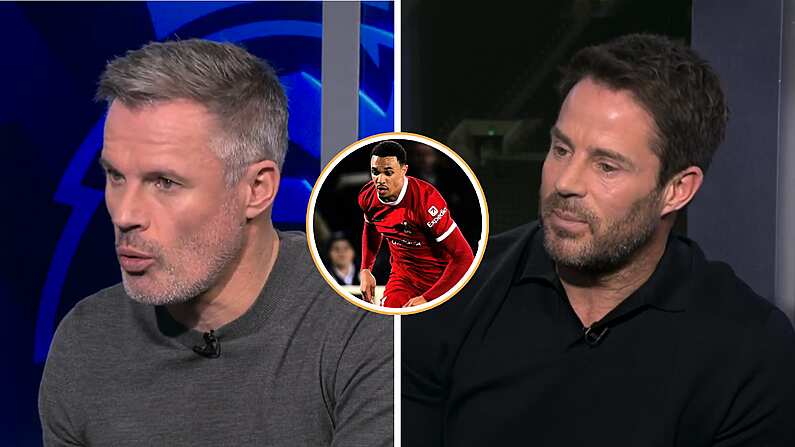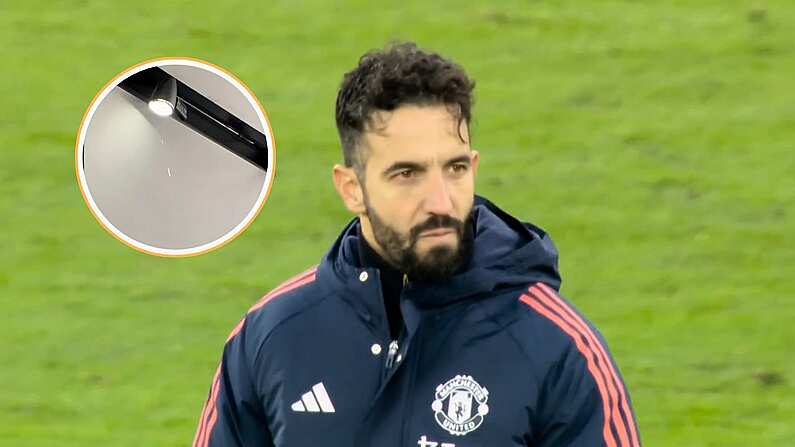Roy Keane once again exhibited his insistence on viewing football entirely as black or gleaming white in his latest diagnosis of the ills of modern football. Keane was quoted by Alan Smith in today's Observer, and criticised American owners who favour employing coaches with "nice tans" and "really nice teeth":
It seems to be coming into the game, more so in England with the amount of foreign owners. Particularly the Americans. They seem to love a coach who's got the whistle around his neck, a clipboard and a tan, and has really white teeth.
Martin [O'Neill] is old school, he likes to manage the club, whereas a lot of clubs are employing coaches. I think it's sad because a lot of clubs don't need coaches, they need good managers.
Keane later went on to criticise Sunderland's decision to sack Martin O'Neill. While Keane is clearly backing his own manager, he also can't help himself probing a deeply held truth.
Presuming the archetype Keane has in his mind is Brendan Rodgers, this seems harsh, who has been a more successful manager than Keane. Rodgers, like Keane, promoted a side to the Premier League, but Rodgers was willing to play the grubby game of self-promotion. Preaching positivity and 'a philosophy', Rodgers landed a gig with Liverpool, while Keane floundered at Ipswich.
While Rodgers is the antithesis of the Irish assistant manager - one can only imagine the abundant scorn which Keane would pour on the notion of a football philosophy - it was Rodgers who was chosen for the Celtic job.
If Keane sees everything as black and white, Rodgers - teeth aside - seems to reside entirely in shades of grey. Rodgers has realised that, in modern football, with the news cycle larger and more voracious than ever, perception is king. Hence his great proclivity of self-promotion. While this seems to go hand-in-hand with Rodgers almost unparalleled ability to produce bullshit: Rodgers spent hours with Mario Balotelli upon signing him, drawing a stickman with a crown to tell Balotelli that he was the king of his own destiny.
Keane is increasingly becoming a quotable anachronism; stressing a near-fervent belief that things were better in his day. Rodgers - for all his shite - had a promising career cut short by injury, and adapted to survive. He is relentlessly positive, and seems to have great empathy for his players, something that Keane has failed to grasp. Consider these bewildering comments on Aiden McGeady the day after the squad announcement:
Roy on Aiden McGeady: "I think he can do a lot better than last night, but maybe that's the story of Aiden's career" #OnOurWay
— eir Sport (@eirSport) June 1, 2016
This is excellent punditry, but does not seem to be the greatest man-management in the world. John Giles - who is right more often than he is wrong - has consistently said that the moment a manager criticises his players in public is the moment he loses his job. It is again the strange contradiction of Keane the manager: unwilling to accept mediocrity from largely mediocre players.
Increasingly, Keane is becoming seen as a lament for a footballing age long since past. Rodgers is representative of the new age, and if Keane does harbour hopes of getting back into club management, he may just have to change. In football today, many owners rely on supposedly objective things like statistics and trends - given the catch-all title of 'Moneyball' - to excuse the fact that they know nothing. Rodgers has realised this, and wowed John Henry at Liverpool with a coaching manual and an extensive powerpoint presentation.
Keane is relying on the intangibles of his instinct and talent. At top-level football clubs today - essentially private limited companies - these just aren't trusted. Keane perceives mediocrity very well - he has coached Djibril Cisse - he should realise the great incompetence of many club owners.
While Keane must bristle at the managerial concept of Brendan Rodgers, he may be looking at a necessary vision of himself.










